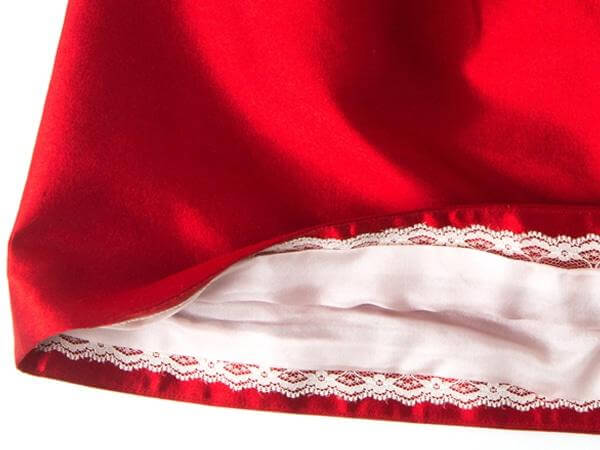If you look at the content of Senza Tempo pieces you’ll notice one key thing: no polyester. Even our linings are silk. It’s a detail that’s as luxe as it is practical because natural fabrics breathe unlike polyester and helps the garments better span the seasons. Acetate, the most common lining for clothing brands, is a synthetic fabric that’s a derivative of plastic. Yes, you read that right. Most of the dresses and jackets in your closet are lined effectively with plastic if not basically plastic. It’s one of the factors that makes the textile industry one of the dirtiest and least sustainable out there (right up there with the petroleum industry itself).
So what does that mean?
Wool is versatile, durable and like most natural fabrics breathable. It naturally assists in the regulation of body temperature. Wool wicks moisture from the skin while trapping dry air and warmth in cooler months. In the warm temperatures, because it’s breathable it draws in air which removes excess heat. Most women think of wool as a cold weather fabric that is only good for warming your body, but it’s not the wool that makes your dress or suit too warm in July — it’s the fact that it’s lined in acetate. You are basically wearing a garbage bag when you wear polyester.
Most of our wools come from Italy which has been the center of wool production for most of Europe since the 13th century. Italy remains at the forefront in textile mill innovation. Our wool comes from the Biella region in northern Italy, known as the wool capital of the world. The hard Alpine water that runs down from the Piedmonte mountains into the region and key to finishing the fabric. Many of the mills remain family-owned businesses, thus quality is a matter of pride.
Wool is inherently more sustainable compared to other fibers. It is a renewable resource that can be shorn from sheep annually. It is also biodegradable at the end of its (generally long) lifespan. It’s naturally anti-allergenic and doesn’t collect static.
For the same reasons, silk is inherently more sustainable than other fossil fuel based fabrics. It’s natural, renewable, and far less environmentally damaging than cotton. It’s also durable despite it’s delicate feel, having tensile strength of steel.
When your goal is to create timeless wardrobe staples that are meant to last for many years cheap synthetic fabrics aren’t even an option. We use wool (and silk) because they are as practical as they are luxurious.


